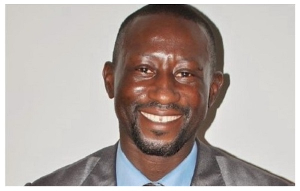Businessman Richard Jakpa, who is the third defendant in the ongoing ambulance procurement trial, has refuted allegations that he received half of the €2.3 million that was paid for the ambulances.
According to him, he did not receive that money, and Attorney-General and Minister of Justice Godfred Yeboah Dame is making a false accusation.
On Tuesday, July 2, he made this declaration during his cross-examination in court.
The Attorney General had claimed that Mr. Jakpa received almost half of the total amount paid by the government under the ambulance contract, which was split between Big Sea Company Ltd. and Mr. Jakpa.
He stated that this was why Mr. Jakpa couldn't provide the nation with real ambulances.
In response, Mr. Jakpa said the allegation was untrue, adding that Big Sea incurred a significant loss on the contract.
"My Lord, what the prosecution is alleging is completely false," he stated.
The former military officer explained that the process involved multiple stages of approval and negotiations with the government over several years, starting with the initial proposal submitted in 2010.
"This contract, exhibit V, was drafted by the government, and the valuation for the cost of the ambulances was done by the government.
"After the Ministry had satisfied itself that they were getting value for money, they proceeded to the Cabinet. The Cabinet did its due diligence and was also satisfied.
"After the Cabinet, the specifications proceeded to Parliament. The Health Committee of Parliament sat on this ambulance project, thoroughly examined the technical specifications, and compared them to the cost that the Cabinet had approved," the third accused said.
He contended that the Health Committee in Parliament endorsed the contract and submitted it to the parliamentary plenary for approval.
"At the plenary, both the NPP, his own government, and the NDC voted for it according to their own consciences after thoroughly perusing the technical specifications."
Mr. Jakpa added that the cost and specifications had undergone all necessary statutory approval processes, even reaching the Public Procurement Authority (PPA), which is responsible for comparing the costs against the specifications and granting approval.
General News of Wednesday, 3 July 2024
Source: kasapafmonline.com

















